October 16, 2018
How landlords can maintain their mojo and retain tenants
 Flexibility is rocking the foundations of the traditional commercial real estate world. It’s entering our workforces, our offices and the shock waves are extending to the relationship between landlord and tenant. This demand for increased flexibility from the world’s workforces is due to a convergence of social and economic factors. JLL’s Top 10 Global Corporate Real Estate (CRE) Trends report predicts the emergence of a more dynamic workforce, demand for work environments that support creativity, cross-collaboration and innovation, and an increasing focus on employee wellbeing and performance will dominate global CRE strategies throughout 2018. This has major implications for both occupiers and landlords.
Flexibility is rocking the foundations of the traditional commercial real estate world. It’s entering our workforces, our offices and the shock waves are extending to the relationship between landlord and tenant. This demand for increased flexibility from the world’s workforces is due to a convergence of social and economic factors. JLL’s Top 10 Global Corporate Real Estate (CRE) Trends report predicts the emergence of a more dynamic workforce, demand for work environments that support creativity, cross-collaboration and innovation, and an increasing focus on employee wellbeing and performance will dominate global CRE strategies throughout 2018. This has major implications for both occupiers and landlords.






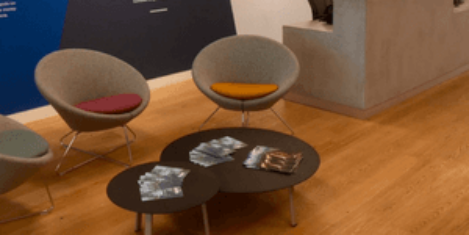
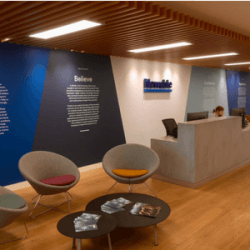


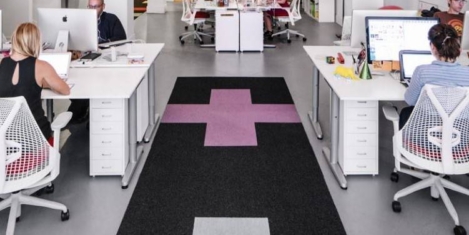
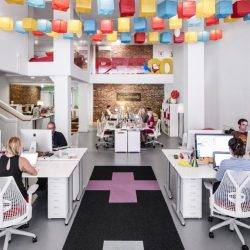
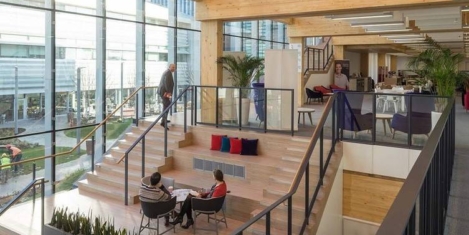
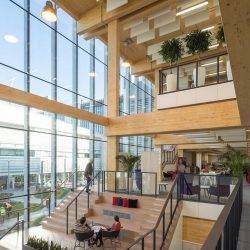





 Today is World Mental Health Day and new research from Bupa has found that concerns over mental health is not confined to adults, as a third of employees say they worry about their children’s mental health while at work. The research, conducted among working parents of 4-18 year olds reveals that children’s mental health is among parents’ greatest concerns, on par with physical health and academic performance. The only concern that ranks higher is future financial prospects.
Today is World Mental Health Day and new research from Bupa has found that concerns over mental health is not confined to adults, as a third of employees say they worry about their children’s mental health while at work. The research, conducted among working parents of 4-18 year olds reveals that children’s mental health is among parents’ greatest concerns, on par with physical health and academic performance. The only concern that ranks higher is future financial prospects. 




 The vast majority (98 percent) of UK employees think learning is essential in deciding to stay or leave their employer, yet new research claims that three quarters (75 percent) of companies don’t have a learning culture and 66 percent don’t have a digital learning strategy. The research from Bridge in collaboration with Two Heads Consulting, finds that most businesses in the UK are struggling to engender a culture that prioritises learning and development with only 25 percent of HR staff saying their organisations have a learning culture. In comparison, three quarters of companies don’t have one at all (11 percent), are still trying to establish one (59 percent) or report it is not a priority (5 percent). Furthermore, despite recognising its importance, 60 percent of UK companies don’t measure the impact of learning on business performance. Employees also complain that their performance reviews are ill thought out and infrequent.
The vast majority (98 percent) of UK employees think learning is essential in deciding to stay or leave their employer, yet new research claims that three quarters (75 percent) of companies don’t have a learning culture and 66 percent don’t have a digital learning strategy. The research from Bridge in collaboration with Two Heads Consulting, finds that most businesses in the UK are struggling to engender a culture that prioritises learning and development with only 25 percent of HR staff saying their organisations have a learning culture. In comparison, three quarters of companies don’t have one at all (11 percent), are still trying to establish one (59 percent) or report it is not a priority (5 percent). Furthermore, despite recognising its importance, 60 percent of UK companies don’t measure the impact of learning on business performance. Employees also complain that their performance reviews are ill thought out and infrequent.







October 18, 2018
Menopause is one of the last great workplace taboos
by Kate Usher • Comment, Wellbeing
(more…)